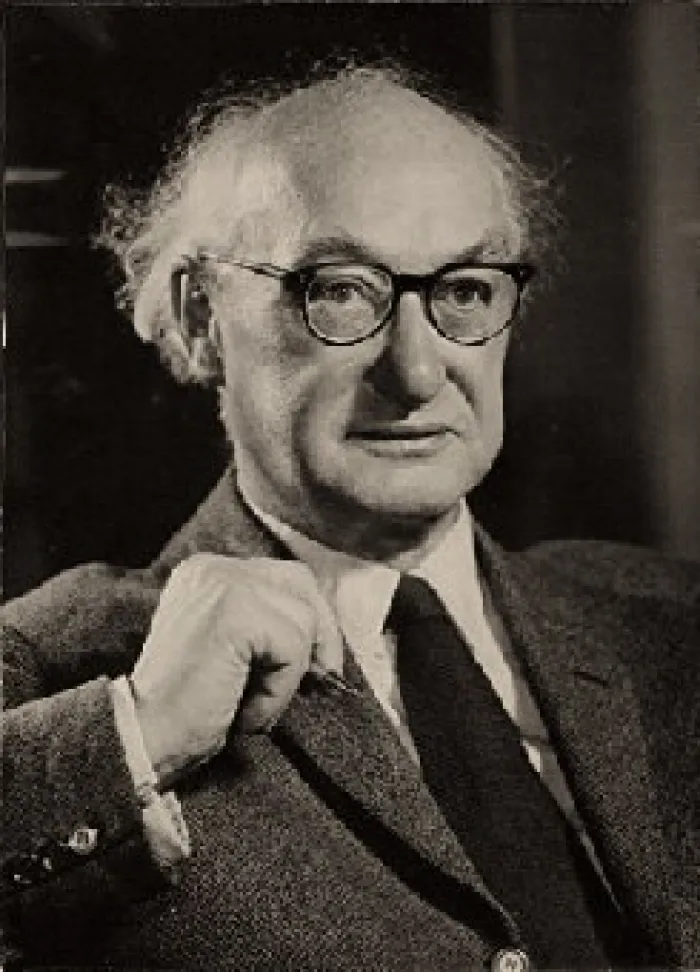Introduction
In the 1920s, pioneering British literary critic I.A. Richards developed an innovative critical approach called “practical criticism” that would revolutionize the fledgling study of English literature. This interpretive method shifted greater focus to close reading grounded directly in the language and imagery of the text itself, rather than dwelling on external biographical or historical context.
Here we will thoroughly explore Richards’ key concepts and principles of practical criticism, assess both its strengths and common critiques issued over the years, and evaluate his enduring legacy as the founding father of the school of New Criticism despite theoretical enrichments and developments in later decades.
Core Tenets Establishing Practical Criticism
At its core, Richards’ practical criticism emphasized certain tenets that came to distinguish what was viewed as an entirely new, and more scientifically objective, approach to textual analysis:
Detailed Examination of Literary Devices
Richards’ criticism called for close examination of the intricate literary devices utilized within a text – including detailed analysis of rhythm, meter, imagery, metaphor, simile, and other poetic techniques. This shifted focus directly onto the craftsmanship and artistry of the language itself.
Objective, Apolitical Analysis
Practical criticism also established the goal of apolitical textual analysis, seeking more scientifically objective interpretation based solely on the words, images and devices employed on the page – as opposed to the author’s background, intentions, or the sociopolitical climate surrounding the work.
Understanding Resulting from Close Reading
Relatedly, meaning and understanding were to be derived primarily from meticulous linguistic analysis and “close reading” rather than dwelling on external contextual factors or speculative assumptions about the author’s life and creative goals.

Downplaying of Authorial Intent & Historical Context
Further distinguishing his new critical program, Richards largely rejected evaluating creative works through the lens of the writer’s biographical context or stated intents. This included deemphasizing interpretation based on prevailing sociohistorical conditions influencing the author.
Elevation of Formal Qualities Over Content
When practically analyzing a text, Richards maintained formal qualities and technical artistry should be examined over informational content or messages conveyed via the writing. This included fiction, which was to be assessed more on literary form than storytelling per se.
These precepts came to distance what Richards deemed legitimate, objective criticism from more impressionistic analysis seeking meaning through conjecture about artists’ inspirations and ambitions. In aggregate, these tenets marked a seismic shift in conceptions of proper literary analysis and elevated the importance of artistic technique.
The Practical Critical Approach as Outlined in Richards’ Seminal Text
Richards first outlined recommendations underpinning his practical critical program in the seminal 1929 book for which this movement was named, Practical Criticism. Here, he detailed an experimental study conducted with Cambridge undergraduates requiring interpretation of unnamed poems without any contextual orientation. Richards used their varied responses to demonstrate a counterproductive overemphasis then placed on authorial intent and sociocultural conditions informing texts.
Instead, Richards advocated literary scholars prioritize what he termed “touchstones” – heightened moments within a work that generate an instinctual aesthetic response in the attentive reader when utilizing close reading.
This response was to be followed by careful teasing out of the technical elements underpinning the text’s construction without undue emphasis on its real-world origins. his approach better highlighted artful wielding of language itself through devices like compelling imagery and sonic techniques including rhyming, assonance and consonance.
Strengths of Practical Criticism in Advancing Literary Scholarship
On the positive side, Richards established practical criticism as a concrete skills framework to pursue the fledgling domain of literary studies with more intellectual seriousness and methodological rigor. This answered skepticism about the validity of English literature as a proper academic discipline. His techniques shifted textual analysis away from appreciative impressionism and grounded interpretation directly in artistic craftsmanship and choices discernible on the page.
Richards also compellingly underscored poetry’s aesthetic elegance as an artistic medium and underscored the talents requisite to effectively employing devices like figurative language. His analytical approach made possible deeper examinations of how formal elements such as narrative perspective, verse and imagery interacted to achieve emotional resonance. This revealed creative writing’s astonishing complexity.
Overall, practical criticism firmly established evaluation of formal textual qualities as the scholarly priority – cementing the defining principles of what would be termed New Criticism and enabling literature studies to develop into a more mature academic field producing serious knowledge.
Critiques and Limits of the Practical Critical Model
For all its revelations about the intricacy of creative expresion, practical criticism elicited notable critiques. Many took issue with Richards’ avoidance of potentially illuminating contextual perspectives that could enrich analysis like knowledge of authors’ cultural milieu and creative visions.
By prioritizing linguistic dissection, Richards’ intense emphasis on “the words on the page” alone risks fostering evaluation disconnected from social reality and readers’ self-recognition. Wider resonances beyond the text itself may be obscured. This later spurred critiques from scholars like E.D. Hirsch, who accused Richards of excessively marginalizing authorial intent and sociocultural context.
In addition, some argue practical criticism’s founding notions establish an overly narrow conception of what constitutes valuable scholarship – diminishing the legitimacy of impressionistic, political or theoretical analyses. The tenet judging literary merit based predominantly on formal dexterity remains contentious.
There are also fears Richards’ intense emphasis on technical composition risks engendering arid textual dissection drained of emotional impact. Critics like David Daiches suggest practical criticism struggles to capture creative works’ affective power. A perceived preoccupation with almost scientifically cataloging poetic devices ignores art’s ultimate purpose – to insightfully engage the human condition and conjure profound feeling through illusion.
Richards’ Legacy as Progenitor of New Criticism’s Analytic Values
While subsequent theoretical developments in areas like structuralism, post-structuralism and deconstruction reacted against and enriched principles established in embryonic form by Richards’ practical criticism, there is no doubt many foundational concepts introduced by his work persist and remain profoundly influential.
Above all, Richards endures through posterity as the pioneer who established formal close reading of primary texts and detailed examination of their intricate artistic composition as the aspirational heart of serious literary analysis. His legacy is visible in ritualized line-by-line scrutiny of fiction, poetry and drama scaffolding secondary literature classes worldwide. This foundation enables deeper revelation of authorial craftsmanship.
Without practical criticism’s pivotal role in confirming literature’s legitimacy as an aesthetic medium and systemizing principles for its formal study, the landscape of the humanities as we understand them today would be unrecognizable. I.A. Richards’ foundational scholarship granted literary criticism acceptance as a technique-based academic discipline in its own right separate from creative writing, with established professional protocols.
While the New Critical movement’s perceived particularism and neglect of certain contextual perspectives has been justly critiqued over time, Richards’ practical criticism endures through its vital cataloging of many technical elements still parsed in textual analysis across educational institutions globally.
Though we now embrace more pluralistic perspectives encompassing reader-response theory, structuralism and post-structuralism have enhanced understanding, the meticulous examination of craft and construction Richards championed remains foundational.
Conclusion
In essence, pioneering scholar I.A. Richards’ principles of practical criticism established the preliminary scaffolding which enabled the domain of literature studies to stand independently as a rigorous area of expertise based around the formal study of texts utilizing close reading. This granted fiction, poetry and drama amplified cultural prestige through revelation of their astonishing artistic intricacy.
Without Richards’ groundbreaking efforts to survey source composition and conduct linguistically-grounded dissection revealing creative intricacy, literature analysis may have languished as an informal hobby for enthusiasts rather than flourishing as a master discipline producing knowledge.
Though his principles have rightly weathered later critique over perceived lack of extratextual context, I.A. Richards’ reformulation of textual study endures as seminal to institutionalizing interpretation grounded directly in artistic form, cementing his legacy as the progenitor of New Criticism and father of modern literary scholarship.







